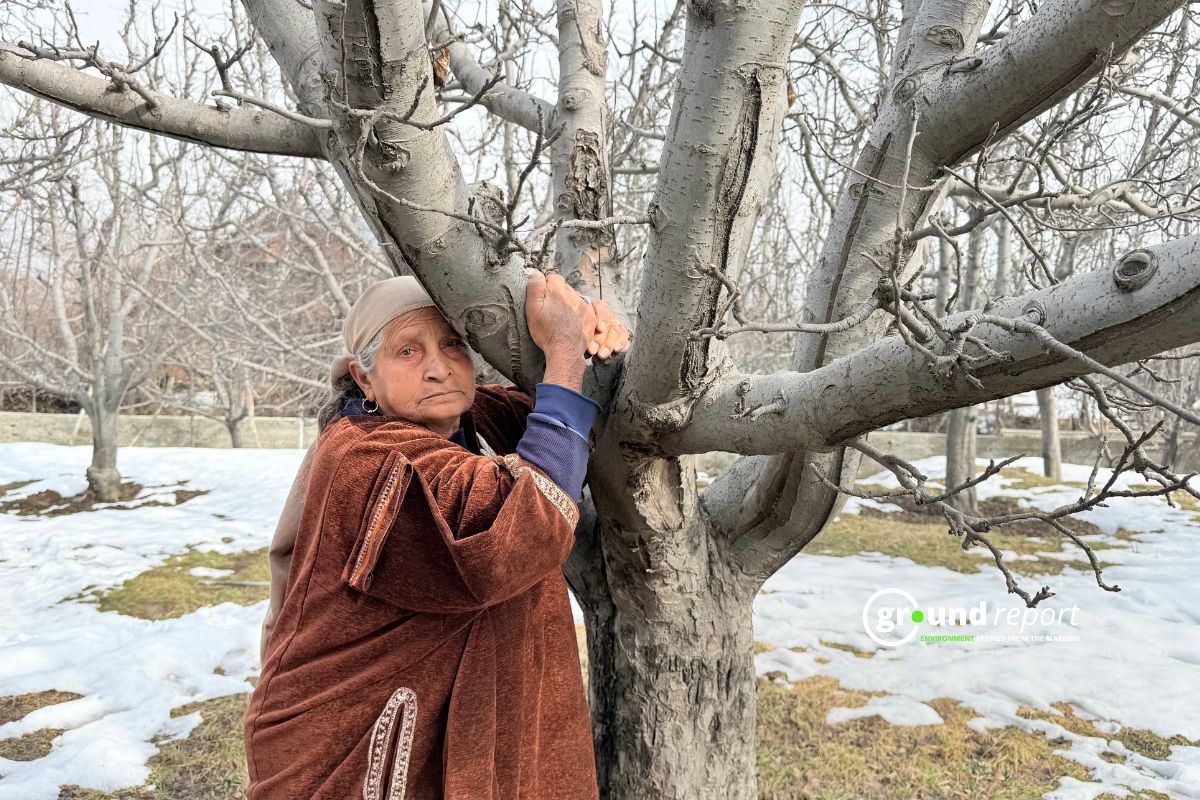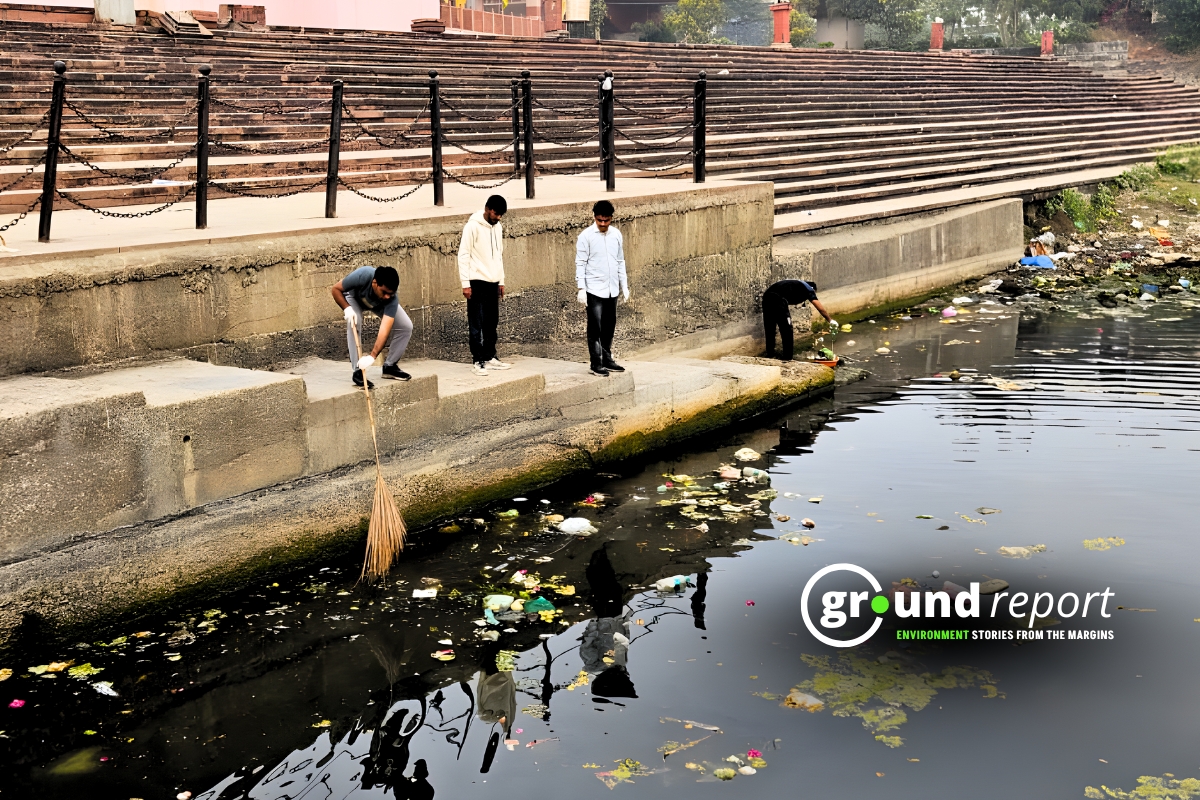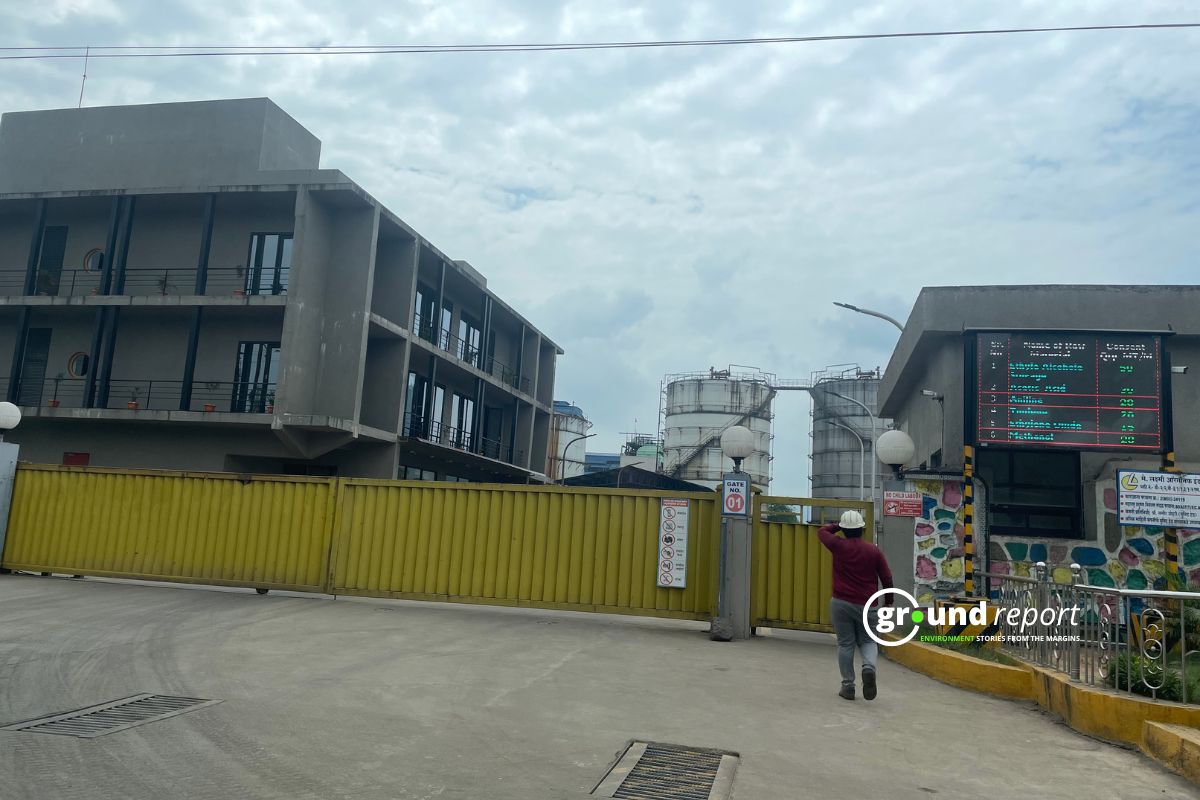April’s wheat harvest season in Madhya Pradesh, traditionally a period of celebration, has transformed into a nightmare for thousands of farmers. Despite favourable weather conditions yielding bumper crops, an epidemic of fires—predominantly caused by electrical failures—has reduced vast swathes of golden fields to ash across Bhopal and Sehore districts.
The 2024-25 agricultural year has witnessed an alarming 4,827 fire incidents, devastating 78,450 acres and causing losses approximating Rs 285 crore. In Bhopal district, 92 incidents destroyed 1,800 acres with damages of Rs 1.2 crore, while Sehore’s 430 fire incidents consumed 2,500 acres, inflicting losses of Rs 2.8 crore. Most disturbingly, electrical short circuits triggered 85% of Bhopal’s fires and 80% of Sehore’s blazes, pointing to systemic infrastructure failures rather than isolated accidents.
Three farmers, one tragedy
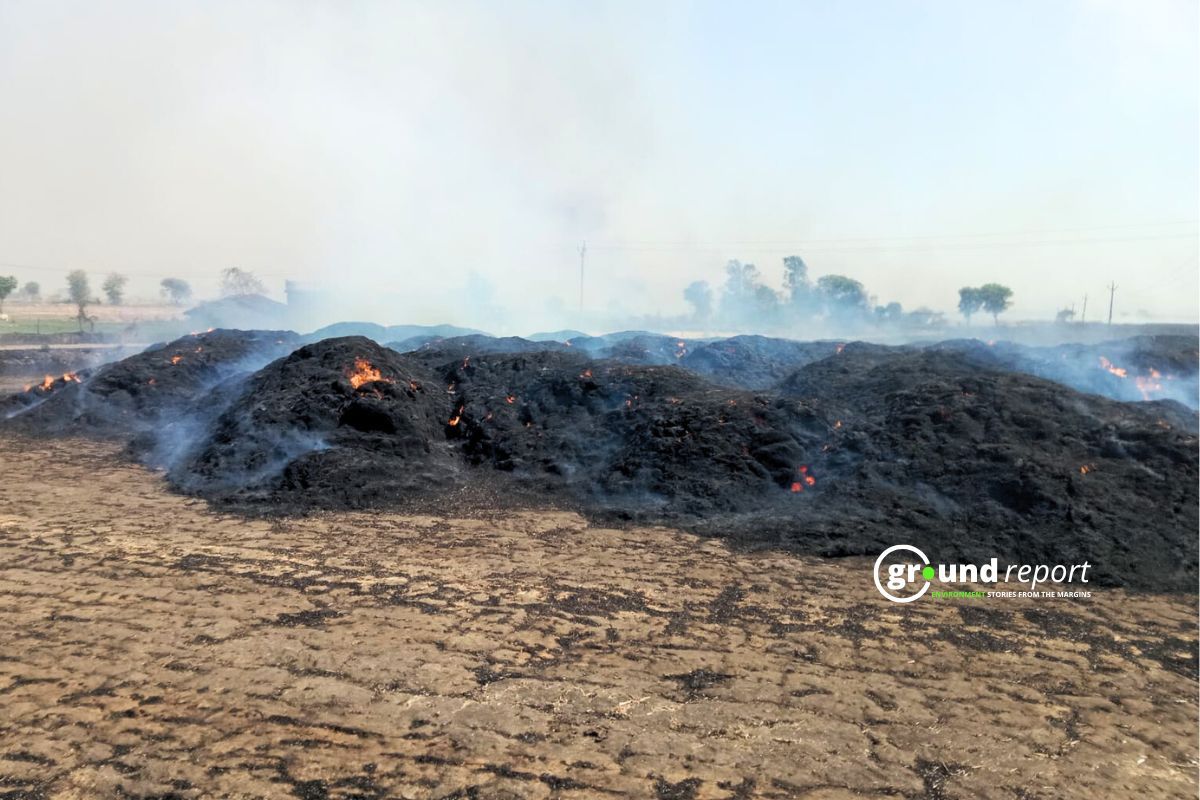
The human cost behind these statistics manifests in the stories of farmers like Mishrilal Rajput, whose dreams for his daughter’s wedding vanished as electrical sparks ignited his wheat fields in Khujrikalan village.
“Wheat worth twelve lakhs was burnt, and irrigation pipes worth three lakhs reduced to ashes,” Mishrilal laments, his voice hollow with despair. “There’s no option but to beg before moneylenders now. My daughter’s marriage will have to be postponed.” His neighbour Kailash Singh adds with bitter resignation, “The electricity department failed us. Proper maintenance of wires would have protected our hard work.”
In Shyampur village, Chhotelal Parmar watched helplessly as a spark from a straw machine consumed four acres of his cropland. “Wheat worth 10 lakhs—gone,” he recounts through tears. “Our children formed human chains carrying water to fight the fire. With a properly equipped fire brigade nearby, both their efforts and our crops could have been saved.”
For Narayan Singh Gaur of Nazirabad, the devastation extended beyond crops to his tractor—his family’s primary source of livelihood. “My tractor was like a brother to me,” he explains dejectedly. “Now I face loan demands of 4 lakhs plus tractor instalments, with no means to pay them.”
The failure of emergency response
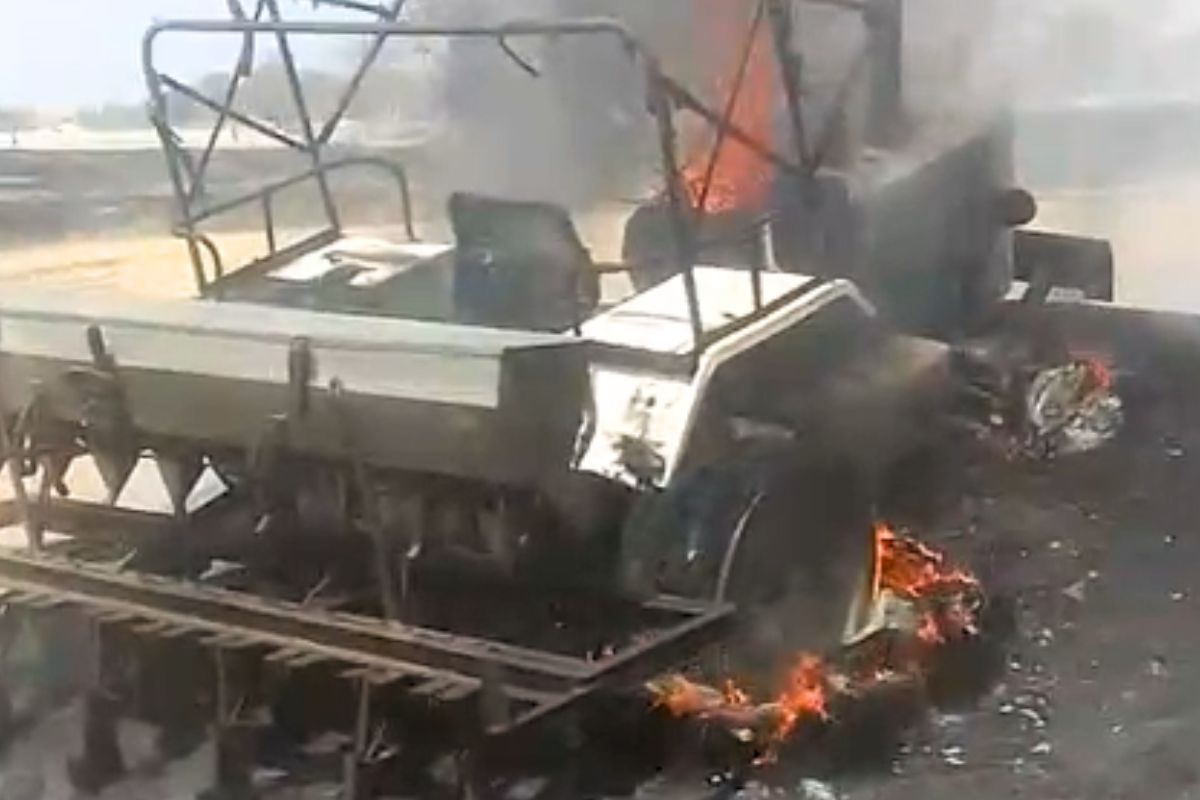
The absence of adequate fire brigade stations in rural areas has dramatically amplified the destruction. In Nazirabad, where Narayan lost both crops and equipment, the nearest fire brigade station sits 25 kilometres away in Bairasia.
“We called the fire brigade 20 times,” Narayan recalls with visceral frustration. “By the time they arrived, it was too late. The tractor had already burnt.” His desperate attempts to extinguish the blaze with his own equipment proved futile against the rapidly spreading flames.
Kailash Gaur, Vice President of Bharatiya Kisan Sangh, emphasises the preventable nature of these losses: “If there had been a fire brigade in Nazirabad, Narayan’s tractor would have been saved. The government must prioritise building a fire station immediately.”
Even in locations where fire brigades eventually responded, critical delays proved catastrophic. In Khajurikala, a 30-minute delay allowed the fire to consume Mishrilal’s fields before firefighters could contain it. In Sehore, Chhotelal waited 40 minutes for emergency responders, while his neighbours’ children formed improvised firefighting teams.
Fire officials acknowledge these critical infrastructure gaps. “A proposal for five new fire engines for Nazirabad and Berasia has been submitted to the government,” confirms Bhopal’s fire officer Sanjay Dubey, though without specifying implementation timelines.
His counterpart in Sehore, Anil Sharma, concedes,
“It’s undeniable that a station is necessary in Shyampur. A 40-minute delay is more than enough to cause irreparable damage. We’re preparing a proposal for the government soon.”
Electrical infrastructure: the root of crisis
The Madhya Kshetra Vidyut Vitran Company (MPMKVVCL), responsible for electricity distribution across Bhopal, Hoshangabad, Gwalior, and Chambal regions, serves 1.2 crore consumers, including 45 lakh rural customers and 15 lakh agricultural users. Yet the infrastructure remains dangerously outdated, with 70% of Khajurikalan’s wiring systems exceeding 20 years of service life and 60% of Sehore’s transformers operating beyond capacity during summer months.
MPMKVVCL Managing Director Kshitij Singhal outlines remediation efforts:
“In financial year 2024-25, we’re replacing 12,500 kilometres of ageing power lines and installing 8,000 new transformers. Our plans include establishing 15,000 kilometres of new lines and deploying 5,000 modern transformers in rural areas—a Rs 200 crore investment specifically targeting short circuit prevention.”
The company’s Public Relations Officer, Manoj Dwivedi, highlights educational initiatives: “We conduct annual awareness campaigns advising farmers about electrical safety practices, discouraging illegal connections, and warning against storing harvested crops beneath transformers or power lines.”
These assurances provide little comfort to farmers like Mishrilal, who observes bitterly, “What good is awareness when we’re still dependent on the same deteriorating wires while transformers become increasingly overloaded every day?” His words echo the frustration of countless farmers whose livelihoods remain at the mercy of inadequate infrastructure despite official promises of improvement.
Insurance: the cruel exclusion
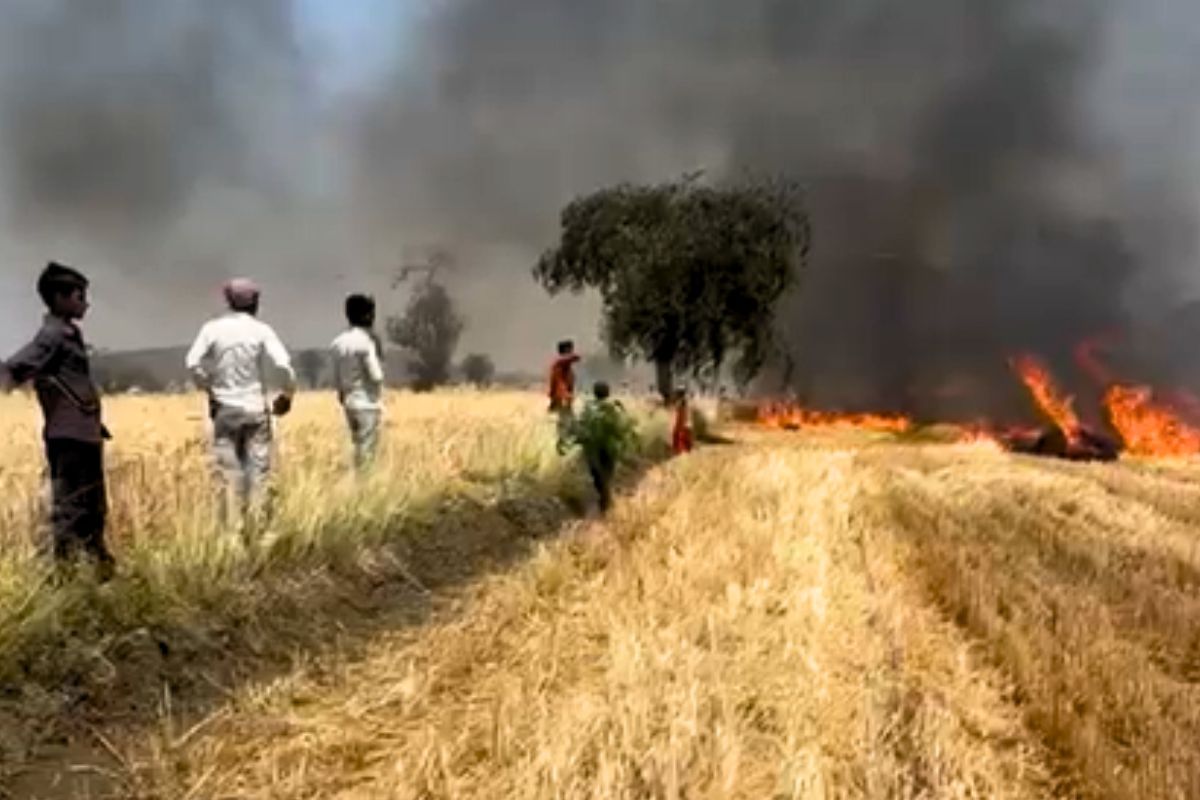
The Pradhan Mantri Fasal Bima Yojana (PMFBY), launched in 2016 and recently extended through 2025-26 with an allocation of Rs 824.77 crore, theoretically covers over 50 crore farmers nationwide. The premium structure—2 percent for Kharif crops, 1.5 percent for Rabi crops, and 5 percent for commercial or horticultural crops—with the remainder subsidised by central and state governments, appears reasonable on paper.
The scheme ostensibly covers losses from sowing to harvesting, including natural fires, lightning, storms, floods, pests, and diseases. However, a critical exclusion has left countless farmers without recourse: fires caused by electrical short circuits—which account for the vast majority of crop fires—fall outside the scheme’s purview.
Insurance companies exploit this technicality by classifying these incidents as “unnatural fires.” Mishrilal’s experience exemplifies this widespread issue: “A survey was conducted, but the insurance company stated that short circuits aren’t covered,” he explains, before asking the question that haunts thousands of farmers: “Who burned my hard work? Who should I approach for compensation?”
Akhilesh Meena, District President of Bhartiya Kisan Sangh, advocates for policy reform:
“Short circuits must be included in PMFBY coverage. Why should farmers bear the consequences of negligence by the electricity department?”
Shankar Jat of Swaraj Kisan Sangathan delivers an even stronger rebuke:
“Eighty percent of fires result from short circuits, yet the Pradhan Mantri Fasal Bima Yojana continues to deprive farmers of rightful compensation. Reform this system, or prepare for a nationwide movement.”
Compensation: salt in the wound
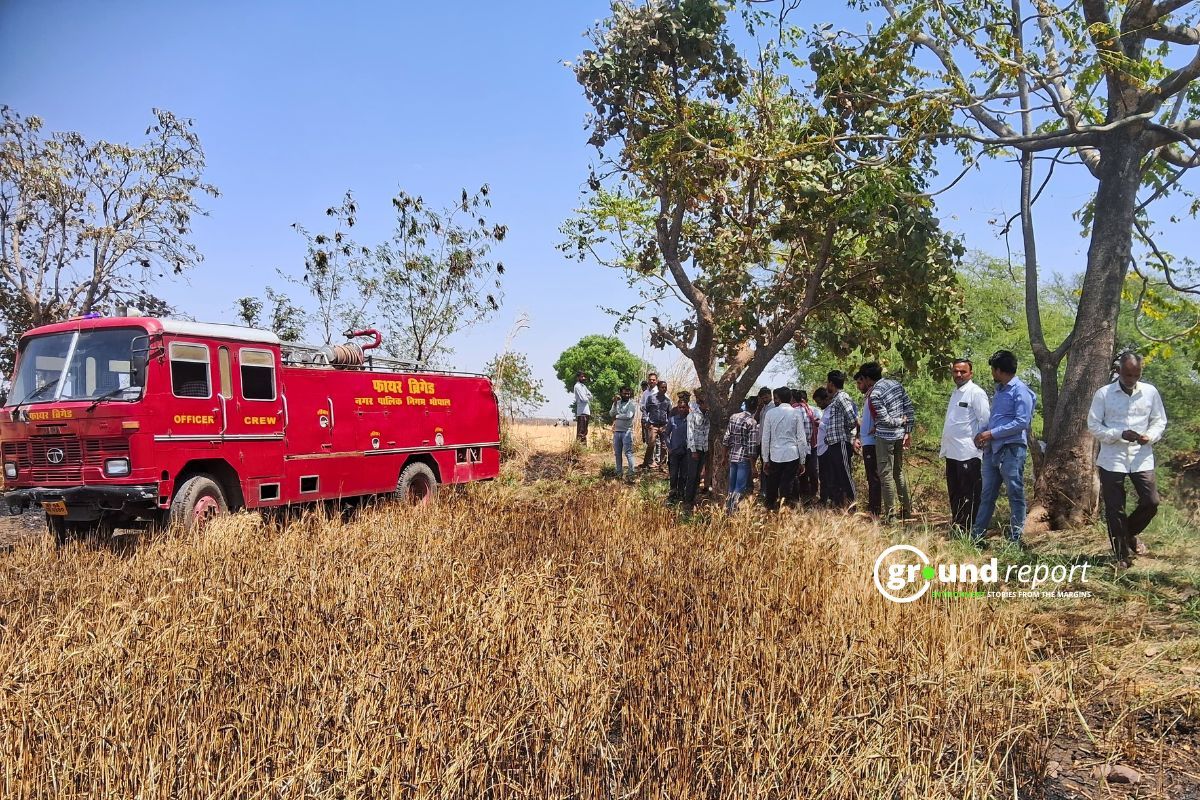
The Revenue Book Circular (RBC 6-4) mechanism in Madhya Pradesh offers minimal relief: Rs 6,800 per hectare for unirrigated land and Rs 13,000 per hectare for irrigated land affected by fire. While the state distributed Rs 13,807.28 crore under this provision in 2023-24, and Rs 48 crore reached 12,500 farmers in 2024-25, the compensation amounts are woefully inadequate relative to actual losses.
Chhotelal’s situation highlights this disparity:
“I’ve suffered losses of Rs 10 lakh, yet they’re offering Rs 40,000 as compensation. What kind of cruel joke is this? This won’t even cover the cost of seeds for the next planting season.”
Local administration officials maintain that processes are underway. Bhopal Collector Kaushalendra Singh states: “Survey work is being conducted in Khajurikala and surrounding areas. Assistance funds will be released to farmers once this assessment is completed.” Similarly, Sehore Collector Balaguru K. reports: “Survey work for 165 cases in Shyampur has been completed, with disbursements scheduled to begin next month.”
The Uttar Pradesh model: a way forward
Farmers’ organisations point to Uttar Pradesh’s Mukhyamantri Khet Khaliyan Durghatna Sahayata Yojana as a model worth emulating. This program provides compensation ranging from Rs 15,000 to Rs 1 lakh within 7 to 15 days of a fire incident—a stark contrast to Madhya Pradesh’s protracted processes.
“In UP, funds reach farmers’ accounts within 15 days,” notes Kailash Gaur.
“Meanwhile, crop insurance in our state takes months to process, and in some cases, compensation never materialises even after years. Farmers in areas like Nazirabad and Sehore need immediate relief, not distant promises.”
Kedar Sirohi of Aam Kisan Union emphasises the time-sensitive nature of agricultural recovery: “Compensation should be disbursed within seven days to allow farmers like Chhotelal to rebuild their livelihoods.”
State Agriculture Minister Aidal Singh Kansana defends the government’s response: “Eighty percent of the 1,200 reported fire incidents have received compensation, and Rs 20 crore has been approved for fire brigade enhancements.” However, farmers’ organisations have announced plans for demonstrations in Bhopal in May 2025 if their demands for reform remain unaddressed.
Expert solutions for systemic change
Agricultural expert Dr Rakesh Sharma acknowledges technological improvements while identifying critical gaps:
“YES-TECH has accelerated PMFBY processing, but short circuits must be covered under the scheme. Modernisation of the power grid is essential for long-term prevention.”
Environmental activist Rashid Noor Khan contextualises the crisis within broader climate patterns: “Climate change combined with outdated electrical infrastructure is increasing fire incidents. Rural fire brigades and biogas plants represent potential sustainable solutions.”
Cultivating hope from ashes
Despite devastating losses that have consumed both their crops and their dreams, farmers like Mishrilal, Narayan, and Chhotelal maintain resilience in the face of adversity. MPMKVVCL’s promises to replace 12,500 kilometres of ageing wires and invest Rs 200 crore in infrastructure improvements offer a glimmer of hope, though many farmers remain sceptical given past experiences.
While the crop insurance scheme provides some relief—Rs 5,200 crore to 32 lakh farmers—the exclusion of electrical fires from coverage and the inadequate per-hectare compensation rates leave a substantial gap between actual losses and received assistance. The absence of sufficient fire brigade stations and their delayed response times further compound these challenges.
Through the persistent advocacy of farmers’ organisations and the example set by neighbouring states’ more responsive policies, the path toward meaningful reform becomes increasingly clear. Just as Madhya Pradesh’s resilient farmers will cultivate new crops from the ashes of their devastated fields, so too might their collective voice cultivate a more equitable system of protection and compensation for the agricultural backbone of the state.
Support us to keep independent environmental journalism alive in India.
Keep Reading
‘Forever Chemicals’ found in all the world’s toilet paper
Trump shuts down staff helping families pay heating bills
Full list of words banned by Trump, including ‘Climate Change’
Oil companies seek Trump’s help to fight climate lawsuits & regulations
Follow Ground Report on X, Instagram and Facebook for environmental and underreported stories from the margins. Give us feedback on our email id greport2018@gmail.com.
Don’t forget to Subscribe to our weekly newsletter, Join our community on WhatsApp, and Follow our YouTube Channel



